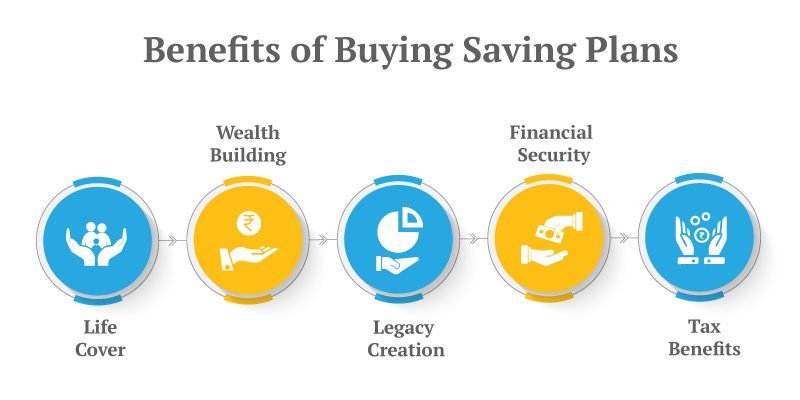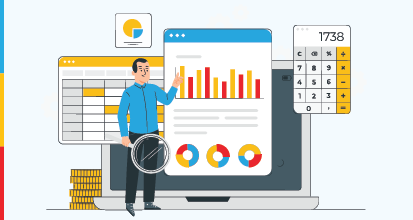2025-06-26
902 Views
4 minutes read
Share
An OTP has been sent to your mobile number

Sorry! No records Found
Thank you for your interest in our product. Our financial expert will connect with you shortly to help you choose the best plan.
When it’s about investments, we should have at least two clear expectations from them. first they will improve our wealth, and second, they will cause minimum tax liability. Fortunately enough, we have several tax saving schemes available in India. However, you need to keep in mind that each tax-saving investment is different and invest accordingly.
Almost all the tax-saving investments we see today are a result of the government trying to promote specific investment behaviours. These behaviours may range from financial safety from unfortunate events to post-retirement life. However, you will commonly find the following features in all tax-saving investments:
This is what has put every tax-saving scheme in India more suitable for specific goals. Also, the scheme risk profiles and tax-saving status differ. Therefore, you should carefully select these investments based on your financial goals and investment risk appetite.
Any investment can offer tax saving at the following three levels:
For example, investment in both Public Provident Fund (PPF) and 5-year tax saving deposit will reduce your tax liability in the year of investment under section 80C. However, while any growth in the PPF will remain tax-free, interest accrued on the FD is taxable.
Similarly, the maturity value from PPF is tax-exempt but will be taxable for the 5-year FD.
Investments which offer all three tax saving are the most tax-efficient schemes. Fortunately for the most important financial goals in our life, we have multiple such investment options. These investments are also called EEE investments where ‘E’ stands for exempt, and three Es mean all three transactions as exempt from tax.

Although you will have many financial goals in life, few stand out because of their long-term nature and impact on your family’s future. Following three financial goals are common for almost every investor and have a significant impact on life.
To meet such long-term goals you need investment options where you can:
Financial safety of workers has been the prime concern of authorities in India. Regular efforts in raising awareness and offer attractive retirement investment plans have given us several great retirement schemes. Also, unlike other financial goals, retirement goal has two very distinct phases of investment:
If you are a 30-year-old investor, you will start to save for your retirement goal which is 30-35 years away from now. Until you reach your retirement goal, your retirement investment will be in the accumulation phase.
Once you retire, you will stop investing in the retirement corpus and start the distribution phase for a pension.
You will need to use two different investment plans for both phases of your retirement goal. While in the first phase you need high-growth tax-efficient investment, in the second you need safety and regular income.
Goal safety should be your top concern when it comes to your child’s future. Your early demise will affect your children the most unless you can ensure the safety of goal achievement.
You need to invest the money in their goal in such a way that they can receive the intended money at the time of the goal, even when you are not there.
Wealth building goal is where you would want to take additional risk on your investment for faster growth. But more than that, you will need to automate the investment as much as possible. Putting your wealth goal on auto mode is important unless this is your full-time dedication.
For example, invest via account auto-debit option, automatic portfolio management for adjusting the asset allocation according to market.
When it comes to tax-efficiency and diversity of investment options, nothing beats ULIP investment plans. Whether you want to invest aggressively towards a prosperous post-retirement or want to secure your child’s education goal, ULIP plan has it all. Also, EEE (Exempt-Exempt-Exempt) investment options such as Public Provident Fund (PPF) and Equity Linked Savings Scheme (ELSS) also offer tax benefits under Section 80C and have tax-free interest and maturity amounts.
ULIP plans are one of the most tax-efficient and capable investments. You can customize your ULIP investment to meet all three goals using the following features:
Note: Deductions under Sections 80C and 80CCD(1B) are available only under the old tax regime. Under the new tax regime, these deductions are not applicable.
You can use the feature-rich ULIP plans to conquer any long-term financial goal you have. Also, if you follow the tax rules, maturity value or any partial withdrawals from ULIPs will be completely tax-free.
You can even use a single ULIP investment plan to meet multiple goals. See How to Use a Single ULIP Plan to Meet All Your Life Goals for more details.
Disclaimer - This article is issued in the general public interest and meant for general information purposes only. The views expressed in this blog are solely those of the writer and do not necessarily reflect the official policy or position of Canara HSBC Life Insurance Company Limited or any affiliated entity. We make no representations or warranties of any kind, express or implied, about the completeness, accuracy, reliability, suitability, or availability with respect to the blog or the information, products, services, or related graphics contained in the blog for any purpose. Any reliance you place on such information is therefore strictly at your own risk. You should consult with a qualified professional regarding your specific circumstances before taking any action based on the content provided herein.
We bring you a collection of popular Canara HSBC life insurance plans. Forget the dusty brochures and endless offline visits! Dive into the features of our top-selling online insurance plans and buy the one that meets your goals and requirements. You and your wallet will be thankful in the future as we brighten up your financial future with these plans.





